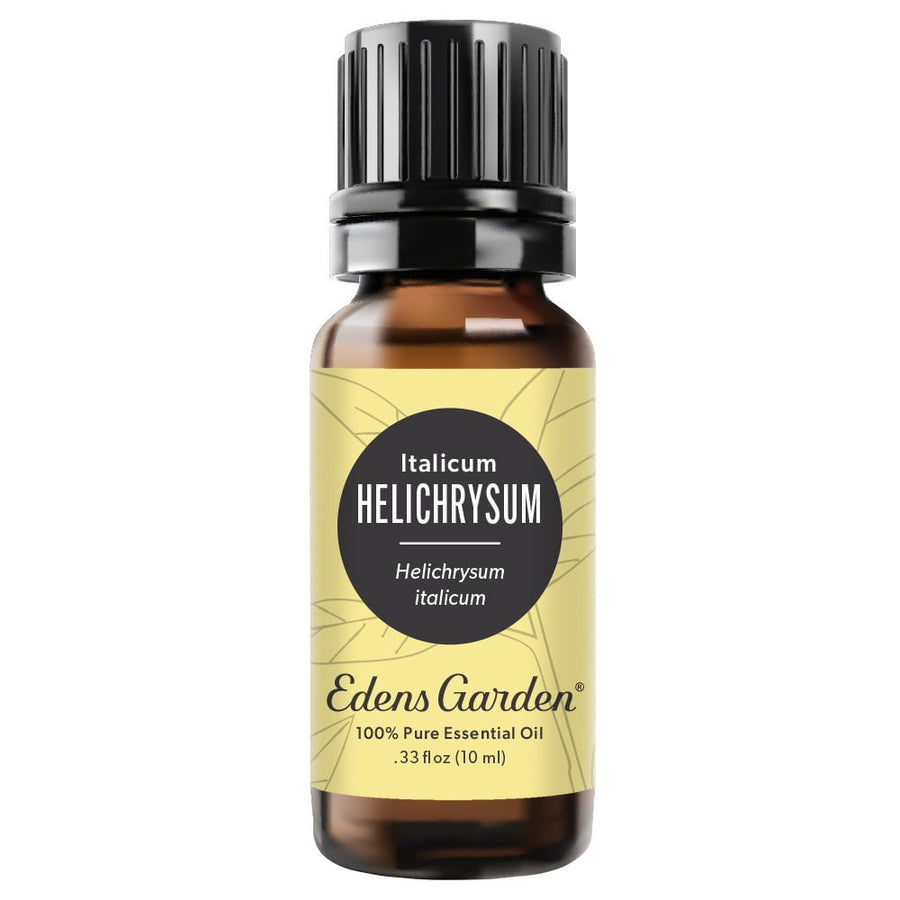AAA: Can You Use Essential Oils to Quit Smoking?

So you’ve decided to quit smoking. Congratulations on your decision to pursue a healthier lifestyle! The journey ahead won’t be easy, but we know you can do it with determination and willpower. To help you get through this journey, using essential oils as a form of nicotine replacement therapy can be helpful. Although essential oils are not a cure for squashing nicotine cravings, they’re able to support smoking cessation in a variety of ways.
One aromatherapist and ex-smoker found that raising a scent strip to their nose with essential oil on it helped replicate the act of raising a cigarette to their mouth. Others have drawn the same parallel to using an essential oil inhaler. What’s more, aromatherapists have touted Black Pepper, Angelica Root, Basil, Frankincense, Helichrysum, Rose, and Vetiver as supportive aromas to manage smoking withdrawal symptoms in times of temptation. But that’s not all! Here are more ways essential oils can help you kick smoking’s butt.
Coughing
Some may develop a temporary cough following smoking cessation. Smoking causes the cilia in your lungs to slow down. Once you stop smoking, the cilia speed up and become active (as in normal, healthy lungs), clearing mucus which produces a cough. To help your cough become more productive in clearing mucus, inhale essential oils with expectorant properties, like Ravintsara, Saro, Eucalyptus and Camphor. And fear not, your lungs will need some time to repair and quitting smoking is the best way to strengthen them.
Recipe
Add to a personal pocket inhaler and inhale as needed.
8 drops Cypress
5 drops Saro
2 drops Frankincense carterii
Digestion
Smoking can wreak havoc on the digestive system, increasing the risk of digestive cancers, heartburn, GERD, peptic ulcers, etc. The irony is that stopping smoking can also create temporary digestive problems like constipation and nausea. Some may also experience an increased appetite. If digestion is dogging you, try applying a supportive essential oil blend like Digest Ease or Tummy Aid, which comes with ingredients such as Lemon oil, Lavender oil, Roman Chamomile oil, and more. You can also read up on additional essential oils that aid digestion on our blog.
Headache
Quitting a substance, including caffeine and nicotine, can result in headaches caused by withdrawal. Though headaches and migraines won’t cease altogether by quitting smoking, headaches that occur following smoking cessation are temporary and can be alleviated with the help of essential oils. Our Head Ease and Head-A-Sore-Us blends are soothing and can reduce the feeling of tension. And if you’re looking for even more headache helpers, our blog offers a wealth of information on our favorite EOs to loosen the grip of the dreaded migraine.
Mood
Irritability, depression, anger and general moodiness are aspects many people face due to smoking cessation. Overcoming moodiness, especially stress and anxiousness, is a key element in kicking the cigarette habit. However, the right aroma can put you in a better state of mind. Unsure where to start? A blend of mood-boosting EOs may help to lift you out of a slump.
- Uplifting: Bergamot Key Lime, Citrus Cream, Simply Citrus, Uplift, Vanilla Ylang Ylang
- Stress: Anxiety Ease, Be Still, Stress Relief, Tranquility, Worry Less
- Balance: Align, Balance, Good Morning, Harmony, Quiet Time
- Fatigue: Awake & Aware, Energy Boost, Eucalyptus Cardamom, Stay Alert
Sleep
Lastly, and perhaps most irksome to those who love a full eight hours, sleeplessness can plague smokers. A lack of sleep can also befall you when quitting smoking, but again, this is likely only temporary. If R&R are hard to come by, we’ve got your back! From our Sleep sets to our Good Night body oil and bath salt, there’s no end to natural ways of achieving some shuteye. Drinking a hot cup of non-caffeinated tea, waking up earlier and minimizing the use of technology before bed doesn’t hurt either.
How to use essential oils to prevent your nicotine craving
Smoking cravings can be hard to extinguish even after you’ve fully stopped. To help you battle your nicotine addiction, here are some methods to use essential oils to manage addiction:
- Aromatherapy Inhaler - An aromatherapy blend of essential oils that you can carry with you anywhere. When your smoking craving kicks in, you can make it a good habit to grab the compact inhaler in place of cigarette smoke. All you need to do is take a deep inhale and allow the scent to help you calm your mind and tension.
- Aromatherapy Diffuser - If you have a mist diffuser at home, try adding a drop or two of your favorite diffuser blend into the mix to spread the scent in the air.
- Massage - Using essential oils as a massage oil is perfect for relieving headaches and clearing your mind. Peppermint essential oil is especially recommended for relieving headaches and migraines. Massage a small amount to your temples and ache spots to release those knots and migraines. Mindfully, always make sure to use a carrier oil to dilute if you plan on using pure essential oils on your skin to avoid irritation and harm. Also, try avoiding sun exposure if you’re using a citrus essential oil such as Orange essential oil, Lemon essential oil, or Bergamot essential oil as it can cause your skin to become sensitive.
Essential oils are just one of many methods to help you quit smoking. Try exercising to help exhaust anxiousness, find a support group to keep you accountable for quitting and write a list of reasons why you’re quitting and how much better life will be on the other end. Remember to consult with your doctor before using essential oils, and we wish you luck in your journey to quitting.









Leave a comment (Comments will be approved before showing up)